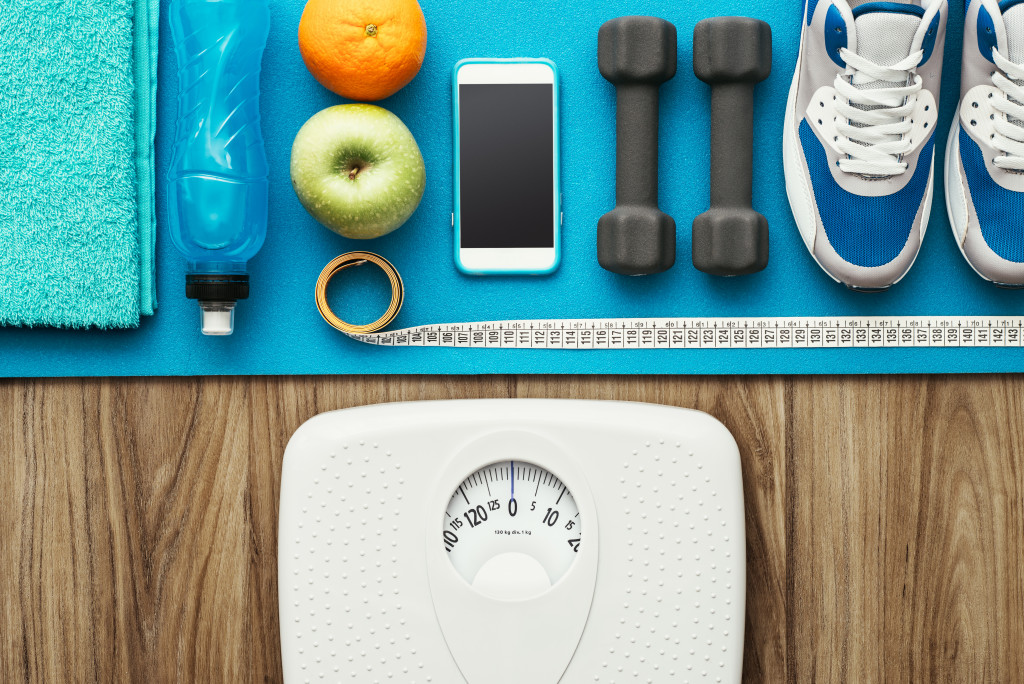At some point, everyone has said to themselves, “I should start exercising.” Sometimes they follow through; other times, nothing comes out of it. It’s undeniable that starting is the most difficult part of exercising, especially if you don’t exercise at all. It’s very difficult to form habits—what more a habit that requires physical effort? However, as most of us know, exercise is one of the things we can do to help improve our overall well-being.
There are many barriers to the beginning: it could be because of the anxiety of going to the gym, lack of knowledge on what exercises to do, or plainly not knowing where to start. These barriers are valid concerns and are something that should be addressed when starting a new habit like exercising.
First and foremost, over-analysis can lead to paralysis, so to get things out of the way: yes, start exercising—and start exercising now. It doesn’t have to be too strenuous; it can just be walking around your house. Even light exercise is good exercise. But if you’re thinking of taking this seriously and don’t know where to start, perhaps begin where you’re probably most comfortable the most: at home.
How to Start: the Mental Approach
OK, so we’ve established you can and should start working out at home, but let’s zone in more on that. Here are a few things that can help you start exercising:
It’s not all or nothing—it’s SOMETHING
As mentioned before, even light exercise is good exercise. While working out conjures images of buff bodybuilders grunting and lifting barbells with five plates on each side, it doesn’t have to be. Exercise shouldn’t be so mentally punishing that it prevents you from doing it. Movement is a human necessity, and all forms of movement are good.
Even if you think your 5lbs dumbbells aren’t worth the effort, they are. If they help you get to a better place than you were before—that’s never not good. All forms of exercise (provided they’re safe) are beneficial.
Equipment doesn’t have to be expensive

Another common misconception when it comes to home training is that you have to buy expensive equipment. In simple words, you do not. You do not need to purchase a $300 dumbbell that can switch from bicep curl mode to chest press mode. You can, if you want to, but it’s not absolutely necessary.
Practicing bodyweight exercises or calisthenics is a popular way to start. It saves you money and time, and absolutely everyone can begin exercising this way. There are other home options, too, like using books for weight or using a chair to guide you when squatting.
Get coaching
Contrary to popular belief, coaches won’t force you to lift inordinate amounts of weights or shout at your ear to lift heavier. They’re rather scientific when it comes to your job—part of it is assessing your physical condition to see what kinds of exercises are most appropriate for you. It goes without saying that one of the things to best help jumpstart your training journey is to get a coach.
There are several options when it comes to coaching, as well. Nowadays, you don’t have to go to the gym to get coaching. Many healt and wellness franchise clubs offer personal coaching; check to see if they have options for remote coaching. A good coach can help you get to lengths you would have a tough time going alone.
Other things to keep in mind
DO start safely, so always check with your doctor first. This is especially important if you have a preexisting medical condition.
DON’T be to tough on yourself when you fail. It’s OK; people get tired, and you’re just beginning. Mistakes are inevitable, and we can only learn from them.
DO have fun. Listen to music. Wear funky exercise clothing if that suits your fancy. Anything to make the experience fun will help you build a habit.
DON’T over-commit. It’s better to come in with lower expectations and begin building your expectations from there. You can’t hit 100 if you can’t hit 10, so it’s best to target that ten first and work your way upwards gradually.
DO set a schedule. This will help you start a habit, and it will teach you to follow a beneficial routine in your life.
Whatever your reason for wanting to exercise, finally deciding to start is a good step. It’s a decision that you will never regret, and only good things can come out of it as long as you commit to it.

